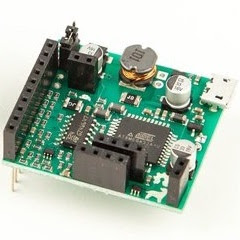After finding out that my CMS 9619 Advanced Single Board MicroComputer was having problems accessing the EXORbus, I tried some trouble shooting. My MULTI-PLANE EXORbus backplane made it easy to accesss the various signals with an extra card edge receptacle attached. I tried pulling down various lines of the data bus with a resistor, and noticed that the 8 bits of data seemed to be responding appropriately. So, probably not the data bus tranceiver.
With little more to go on, I ended up buying an inexpensive USB logic analyzer and installing PulseView software for it. I was quickly able to identify that the bus's VUA (Valid User Address) signal was not rising when it was supposed to, even though it was receiving the correct signal from the PAL address decoder. Without this signal, the I/O card was never properly addressed, and the data bus was always floating. I tested another CMS 9619A board I have which displayed similar symptoms and found that it too was suffering from a failure of the same IC. Odd coincidence. So, after some desoldering, super-gluing a trace that was inadvertently partially pulled off the board, and re-soldering a new 74LS244 8-bit driver (U9), I am back in business. The chip came off of the other board much easier with the help of a heat gun.
I can't recommend these cheap logic analyzers enough to a hobbyist, although the first one I recevied was not working properly on some channels (make sure to test them before you rely on them for anything).
I also bought an EspoTek Labrador USB oscilloscope to try out, but I received, tested, replaced, and finally used the cheap logic analyzers from ebay while I was still waiting for the Labrador to arrive.


Just an update, I found the same problem on a 3rd CMS processor board, the CMS 9609. All 3 had failure of the VUA bus signal due to a buffer IC failure. I think all of these modules were on a bus where VUA was being asserted by something, causing contention, and eventual buffer failure.
ReplyDelete